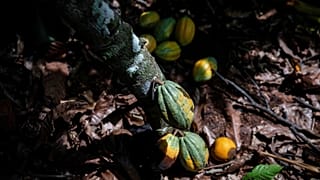Morocco
Moroccans visiting this vegetable and fruits in the city of Sale have been finding it harder and harder to buy from it.
As inflation continues to rise, many people in the country are finding themselves priced out of certain things, including food.
''If we take a look at the prices of vegetables in the market we will notice that they are still high, and people can no longer afford to buy. Before, 100 Moroccan dirhams (about 10 euros, editor's note) were enough to buy vegetables for a week. Now, even 300 dirhams (about 30 euros, editor's note) are not enough. That's almost a 200% increase in the citizens' purchasing power," said Abdessalam el-Mahdaoui, a retiree.
The government in a report that inflation accelerated to 8.9% in January, up from 6.6% in December.
''..First of all, we must lower [the prices of] basic necessities: flour, sugar and oil, because these are products that people use a lot," said Khadija el-Asri, a housewife.
Morocco has been negatively impacted by the conflict in Ukraine war, as have the rest of the world's economies, as commodity prices have risen; food and energy in particular.
Under pressure from protests last year, the government scaled up social protection. But discontent remains.
The country's Central Bank had expected inflation to slow to 3.9% in 2023 from last year's high of 6.6%.












00:50
Ghana's multidimensional poverty rate declines for third consecutive quarter
00:51
Nigeria to revise inflation reporting after artificial spike expected in December
01:12
Iran warns Washington it will retaliate if the US launches an attack
01:00
Protests erupt in La Paz over Bolivia's fuel subsidy cuts
01:00
Christmas lights attract Lagos residents despite violence and rising costs
01:24
Death toll in South Africa shooting rises to 12 after one victim dies in hospital